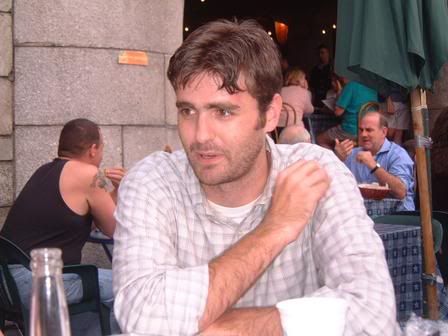Going Galt
 Ayn Rand’s tirade against big government, Atlas Shrugged, finds a new set of devotees with each incoming class of college freshmen. It’s one of those books that will always resonate with a significant portion of the population. It hovers near the top of most lists of the most influential books of the 20th Century, and its sales have maintained a steady clip in the fifty or so years since its publication.
Ayn Rand’s tirade against big government, Atlas Shrugged, finds a new set of devotees with each incoming class of college freshmen. It’s one of those books that will always resonate with a significant portion of the population. It hovers near the top of most lists of the most influential books of the 20th Century, and its sales have maintained a steady clip in the fifty or so years since its publication.But something interesting has been going on this year. As the Economist reports, sales of Atlas Shrugged have been steadily rising and even spiking in conjunction with events like the bank bailout and the stimulus package. The sales rank of the book in the first months of the year was several hundred places higher than where it typically sits, reaching as high as #33 on January 13.
Looking back historically, there is evidence to suggest that any time governments begin to intervene in things that are usually private, sales of the book spike. Adding fuel to this latest flare-up are bloggers and right-wing pundits who are lamenting the control that the government is assuming. Many are even floating the idea of “going Galt” and, like the protagonist of the book, ceasing work so that the engine of the world stops. That’ll show ‘em.
The problem with this comparison (aside from the fact that bloggers and pundits consider themselves essential to the operation of the world) is that Rand’s philosophy is a model based not off of a reality but off of an ideal. Or, more accurately, the only way Rand could envision her philosophy was by defining what it was not. Rand grew up in Soviet Russia, a society so hindered by its government that it eventually collapsed under the weight of it. She was right on there. Trying to apply the principles contained in her books to our present situation is like trying to recreate M.C. Escher with an Etch-a-Sketch. Rand deals in broad strokes, and her philosophy only works in a vacuum. That’s one reason why they’re so popular among college students, the one population with very high intelligence but very low experience.
I find it surprising that people try to apply Rand’s philosophy to government. Where her ideas are valuable, and where I think her points are most salient, are in the arts. This is another reason why they are so popular among college students, a population that views everything with an earnestness and idealism that is usually the domain of artists. Howard Roark and John Galt are icons of the counterculture because they stood up against the machine and went their own way, regardless of how much resistance they faced. When you apply that to government, you get George W. Bush, and you get the sort of principles that led to the banking crisis.
Pundits can crow all they like about “going Galt” and the idea of the creative classes bringing the world to its knees, but it’s a notion that doesn’t have much basis in reality. It sure makes for some good TV though.
Labels: literature, politics, rant


0 Comments:
Post a Comment
<< Home